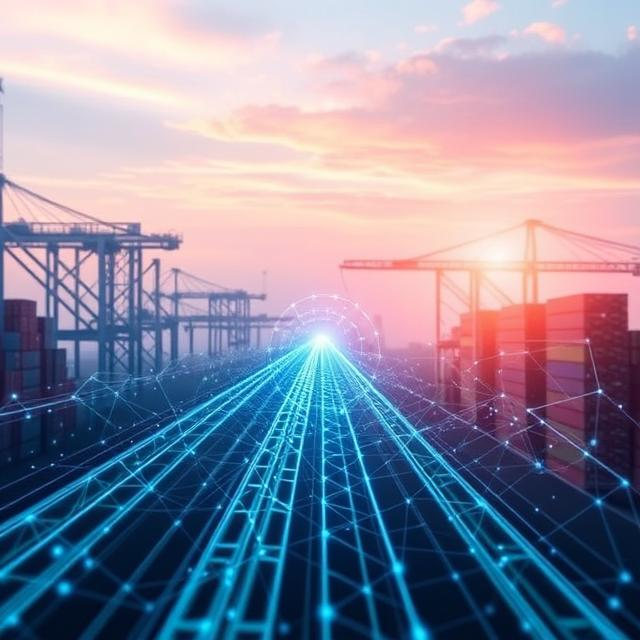Blockchain technology has a revolution in how companies handle their supply chains. By offering a safe and clear method to follow products from start to finish, blockchain boosts productivity, safety, and faith in world trade. Let’s dive into how this tech makes supply chain management better and what’s coming next.
What is Blockchain Technology?
Blockchain is a spread-out digital record that logs deals across a web of computers. Unlike old systems with one main database, blockchain spreads data across many spots making it hard to change or mess with records. This makes it perfect to track goods in supply chains.
Benefits of Blockchain in Supply Chains
1. Transparency
Everyone in the supply chain can see a product’s history, which builds trust and holds people accountable.
2. Security
Encrypted and tamper-proof transactions stop fraud and block unwanted changes.
3. Efficiency
Blockchain cuts down on paperwork and makes things happen faster by automating transactions and keeping track of things.
How Blockchain Makes Supply Chains Better
1. Better Transparency and Tracking
Blockchain lets companies watch products in real time. For instance, it can follow a food item from the farm to the store making sure it’s fresh and safe.
2. Tougher Security
Every transaction gets a secure record that’s hard to change. This matters a lot in fields like medicine where checking if drugs are real can stop fakes and health dangers.
3. Quicker and Automatic Transactions
Smart contracts—deals that run on their own in the blockchain—make payments and other exchanges happen without paperwork cutting down on wait times.
Real-Life Uses of Blockchain in Supply Chains
1. Keeping Food Safe
Stores like Walmart use blockchain to follow food from farms to shops. If food gets contaminated, they can find the bad batch fast and take it off the shelves making food safer for buyers.
2. Checking Luxury Items
Luxury brands now use blockchain to verify the authenticity of high-end bags, watches, and diamonds. Each item gets a unique digital ID, which helps stop fake products.
3. Making Car Manufacturing Better
Car makers track parts with blockchain from creation to assembly. This ensures they use approved components, which boosts safety and quality checks.
What’s Next for Blockchain in Supply Chains
1. More Industries Will Use It
We expect to see blockchain grow in areas like healthcare, retail, and manufacturing. This will make supply chains work better and cost less.
2. Teaming Up with IoT to Watch Things in Real Time
When you pair blockchain with IoT gadgets, companies can keep tabs on product states as they happen. Sensors watch over temperature, moisture, and where things are, which ensures the best storage and shipping.
3. Following Rules and Meeting Green Goals
Governments and companies are eyeing blockchain to stick to regulations and track how they affect the environment. Blockchain can help prove sustainable sourcing, carbon output, and fair work practices.
Hurdles in Using Blockchain for Supply Chains
1. Big Upfront Costs
To set up supply chain systems based on blockchain costs a lot, which makes it tough for smaller firms to jump in. But the long-term gains in smoothness and safety can make up for the money spent at first.
2. Fitting with Old Systems
A lot of businesses still use outdated supply chain management systems that might not work well with blockchain. To put this new technology into action, companies need to upgrade their systems and teach their staff how to use it.
3. Problems with Growing Bigger
When more transactions get added to a blockchain, it can slow things down. People are working on new ideas like better blockchain structures and ways to make it easier to grow, to fix this issue.
